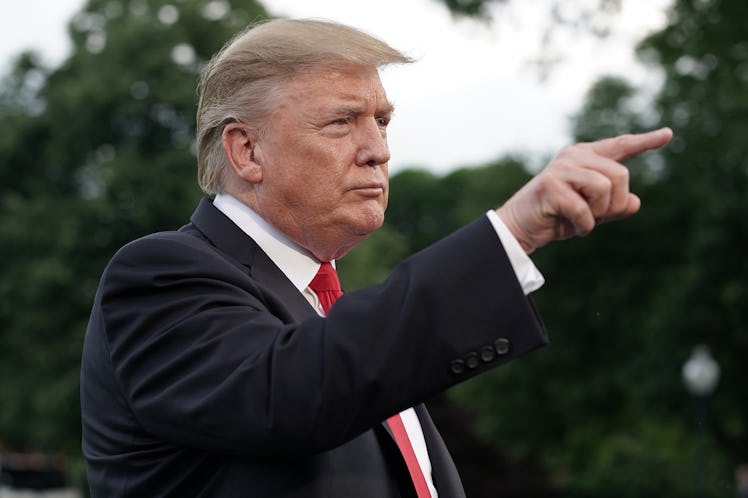
A Judge Shut Down Trump's Attempt To Avoid A Subpoena, So There Goes That
It hasn't been a great few days for the president's financial interests. On Monday, May 20, a federal judge upheld a congressional subpoena seeking to access several years of President Donald Trump's financial records from an accounting firm. Although Trump has pushed back against the judge's ruling, it brings up the question: Can the president block a subpoena? Trump might have no option but to allow the release of his financial records, based on a recent ruling.
In April 2019, the House Oversight and Government Reform Committee subpoenaed 10 years of Trump's financial information from accounting firm Mazars USA, which prepared several years of accounting information for Trump, per CNN. The request was part of a probe led by various Democratic committee chairs into Trump and his businesses, finances, presidential campaign funding, and whether Trump committed any crimes before he became president. Although Trump refused to comply with the subpoenas and other requests from the House Oversight Committee, U.S. District Court Judge Amit Mehta ruled on May 20 that Congress is able to investigate potential illegal behavior by a president. Mehta also denied the president's request for a stay pending appeal, which is a court order that temporarily suspends court proceedings or the effect of a judgment. According to Politico, Trump responded to Mehta's ruling by calling it "ridiculous" and "totally wrong" when speaking with reporters at the White House.
Jay Sekulow, one of the president’s personal attorneys responded to Mehta's ruling by saying they planned to appeal it. "We will be filing a timely notice of appeal to the D.C. Circuit Court of Appeals," he said per Politico, suggesting this legal fight wasn't over. According to The Washington Post, on Tuesday, May 21, Trump's lawyers notified a federal judge that they would appeal every part of Mehta's ruling that Mazars must turn over Trump's financial records to congress, meaning the legal battle will continue.
In the 41-page opinion, Mehta wrote, "Congress plainly views itself as having sweeping authority to investigate illegal conduct of a president, before and after taking office. This court is not prepared to roll back the tide of history." As of publication, the president has not been formally accused of nor charged with any crime.
Trump isn't the only president to claim he's exempt from congressional investigation or subpoenas. Both President Richard Nixon and President Bill Clinton claimed executive immunity and said they should not have to respond to subpoenas regarding what went on in the Oval Office in order to protect confidential information. But in 1974, the Supreme Court ruled in United States v. Nixon that executive immunity didn't mean that presidents' actions could never be reviewed, and that presidents had to respect due process and "fair administration of criminal justice."
However, as NBC News points out, that doesn't put to rest the question of whether a president can refuse to cooperate with an investigation into his own behavior, namely because no president has ultimately done so before. According to Politico, Mehta's decision is the first time a federal judge has "weighed in on the oversight" issues between Trump and Democrats.
Stay tuned, everyone. There's no telling where this will end.